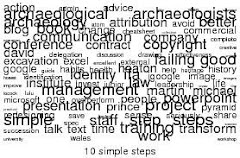A Manager's Guide to Self Development by Mike Pedler, John Burgoyne, and Tom Boydell
Buy it from Amazon
Primers on a wide range of activities and tools, framed within a programme of self assessment and review. Although the chapters contain example exercises, the further reading recommended will be needed to pursue a topic in earnest; it is an excellent way to get a feel for the issues as an introduction.
The Definitive Book of Body Language by Allan Pease and Barbara Pease
Buy it from Amazon
Although presented in a chatty and populist format, this contains a lot of interesting insights into non-verbal communication. Many of their explanations for the origins of behaviour are derived from simplistic evolutionary and sociobiological determinism, but this does not devalue their observation and analysis.
Getting Things Done by David Allen
Buy it from Amazon
Discussed elsewhere: but in summary, well worth buying. I have carried it around with me for months, telling anyone who'll listen about the almost magical powers of the Two Minute Rule (if something takes less than 2 minutes, do it straight away; if not, put it on the list), the Waiting For list (tasks which you can take no action on until someone else does something, and which, therefore, there is no point you thinking about), Next Actions (listing not a big nebulous project like 'buy a house' but the immediate next step, like 'go to an estate agent'), and Agendas (places to note down things you need to say to people when you think of them). It really will change your life, leaving your mind clear to think and your time free to do stuff, not organise stuff.
[fuller review here]
The One Minute Manager by Kenneth Blanchard and Spencer Johnson
Buy it from Amazon
Simple, painless to read advice intended mainly for people managers in offices. The three secrets of the One Minute Manager are setting and agreeing goals, praising good performance, and reprimanding poor performance, within the context of a one minute conversation. A good reminder that leaving people to get on with their work is not the best approach.
Managing Archaeology edited by M A Cooper, A Firth, J Carman and D Wheatley
Buy it from Amazon
Collected papers from sessions on management and archaeology from the TAG 1992 and IFA 1993 conferences. Includes case studies from English Heritage, MOLAS and GGAT, but half the volume is concerned with archaeological resource management and related issues, so there is less emphasis on project management than might be expected.
... and finally
 10 simple steps to better archaeological management by Martin Locock
10 simple steps to better archaeological management by Martin Locock
The book of the blog: details here.
Wednesday 5 March 2008
Annotated book list
Subscribe to:
Post Comments (Atom)







No comments:
Post a Comment